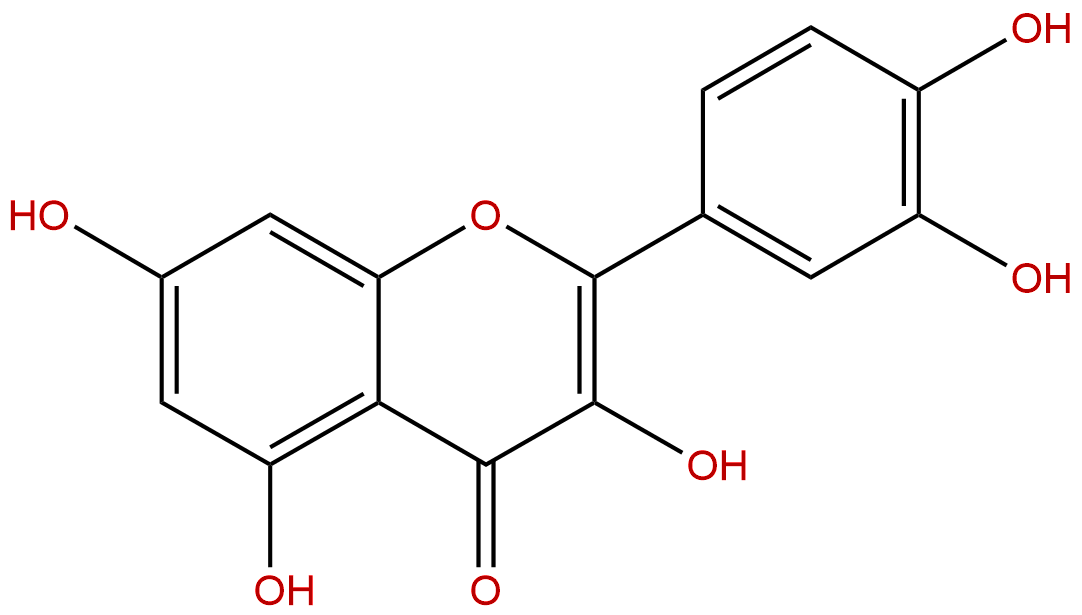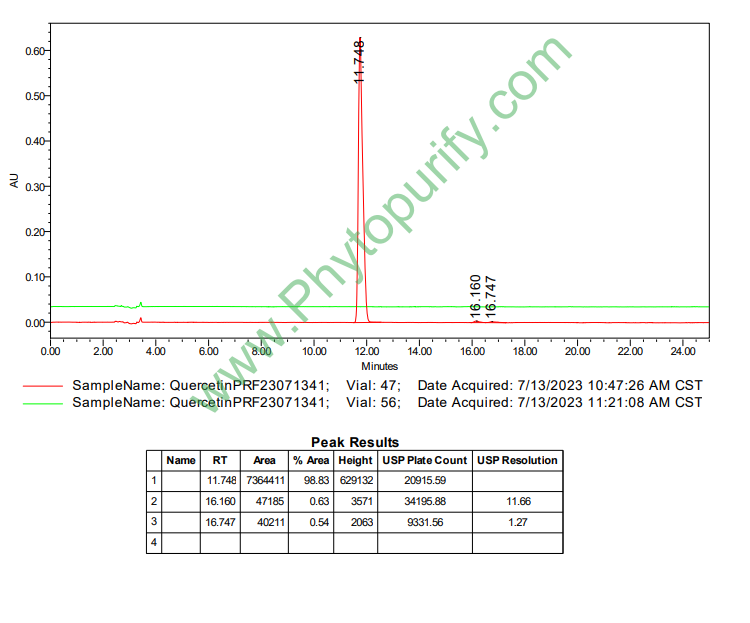
QuercetinCAS No.:117-39-5 |
||||||||||
 |
|
|
||||||||

| Catalogue No.: | BP1187 |
| Formula: | C15H10O7 |
| Mol Weight: | 302.238 |
| Botanical Source: | Sophora japonica L. |
Product name: Quercetin
Synonym name: Sophoretin; Meletin; Quercetol; Quertin; Ericin
Catalogue No.: BP1187
Cas No.: 117-39-5
Formula: C15H10O7
Mol Weight: 302.238
Botanical Source: many plants, esp. fruits, such as Helichrysum, Euphorbia and Karwinskia spp. Present in the Solanaceae, Rhamnaceae, Passifloraceae and many other families. For example detected in almost all studied Umbelliferae
Physical Description: Yellow powder
Type of Compound: Flavonoids
Purity: 95%~99%
Analysis Method: HPLC-DAD or/and HPLC-ELSD
Identification Method: Mass, NMR
Packing: Brown vial or HDPE plastic bottle
Storage: Store in a well closed container, protected from air and light. Put into refrigerate or freeze for long term storage.
Whenever possible, you should prepare and use solutions on the same day. However, if you need to make up stock solutions in advance, we recommend that you store the solution as aliquots in tightly sealed vials at -20℃. Generally, these will be useable for up to two weeks.
The product could be supplied from milligrams to grams, up to kilograms
Inquire for bulk scale.
Descriptions:
Quercetin, a member of the flavonoids family, is one of the most prominent dietary antioxidants. It is ubiquitously present in foods including vegetables, fruit, tea and wine as well as countless food supplements and is claimed to exert beneficial health effects. This includes protection against various diseases such as osteoporosis, certain forms of cancer, pulmonary and cardiovascular diseases but also against aging. [1]
Quercetin aglycone modulates several signal transduction pathways involving MEK/ERK and Nrf2/keap1, which are associated with the processes of inflammation and carcinogenesis.[2]
Guercetin can attenuate the function of AR by repressing its expression, inhibit the secretion of the prostate-specific, androgen-regulated tumor markers, PSA and hK2. and has the potential to become a chemopreventive and/or chemotherapeutic agent for prostate cancer.[3]
Quercetin and curcumin modulate ACFs correlates well with their ability to induce apoptosis via the mitochondrial pathway, may exert significant and potentially beneficial effects on decreasing the amount of precancerous lesions and inducing apoptosis in the large intestine.[4]
Quercetin supplementation reduces blood pressure in hypertensive subjects.[5]
References:
[1] Boots A W, Haenen G R M M, Bast A.Eur J Phamarmacol , 2008, 585(2–3):325-37.
[2] Murakami A, Ashida H, Terao J.Cancer Lett , 2008, 269(2):315–25.
[3] Xing N, Chen Y, Mitchell S H, et al. Carcinogenesis, 2001, volume 22(22):409-14.
[4] Volate S R, Davenport D M, Muga S J, et al. Carcinogenesis, 2005, 26(8):1450-6.
[5] Edwards R L, Lyon T, Litwin S E, et al. Brit J Nutr, 2007, 137(11):2405-11.
[6] Liu H P, Shi X F, Zhang Y C, et al. Cell Biochem Biophy, 2011, 61(1):59-64.
HPLC of Quercetin
